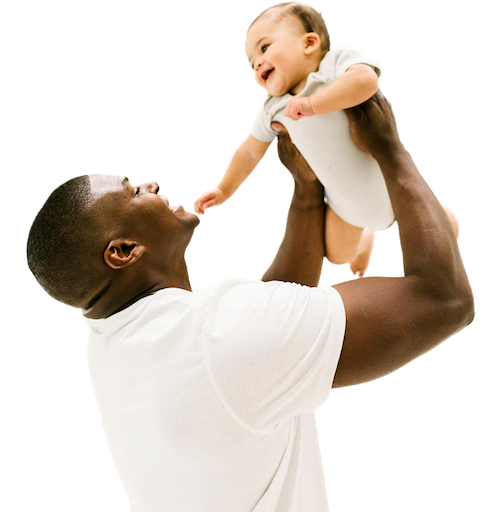Your twenty month old is developing so rapidly. They’re understanding cause and effect, moving all around, and wanting to be just like you. You may see some changes in sleep around this age too. Let me answer all your questions about 20 month old sleep schedules, naps, regressions, and more.

The 5–24 Month Collection
stars ( reviews)
If you need a plan for your 20 month old’s sleep, my 5-24 Month Collection will help. You’ll remain emotionally connected to your little one while helping them achieve 10-12 hours of overnight sleep and restorative naps. You’ll have the confidence to handle bedtime battles, separation anxiety, illness, and any other bump along the way.
Learn MoreWhat are wake windows for a 20 month old? anchor
Around 20 months, wake windows are about 4-6 hours.
Here’s a guide to setting up a daily routine for your 20 month old:
About 5-6 hours after Wake Time = Nap
About 4-5 hours after the end of the Nap = Bedtime
20 Month Sleep Schedule Guidelinesanchor
Every little one is unique and your toddler’s day will depend on when they wake, how long they nap, and individual cues. Try aiming for these age-appropriate guidelines. These are not intended to be a rigid schedule, simply a guide for setting up a flexible routine.

Text version of 20 month sleep guidelines table
| Daytime Feedings: | 3 meals, snacks as needed |
|---|---|
| Goal Daytime Sleep: | 2-3 hours |
| Sweet Spot Bedtime: | 7:00-8:00 pm |
| Number of Naps: | 1 |
| Wake Windows: | 4-6 hours |
For more details on these recommendations, keep reading.
What is a sample sleep schedule for a 20 month old? anchor
Here is a sample schedule for an 20 month old. Keep in mind that this is just an example and your little one’s day to day schedule will vary based on their individual wake windows, when they wake in the morning, how long they nap, and when they eat.

Text version of 20 Month Old Sleep Schedule table
| Time | Activity |
|---|---|
| 6:50 am | Wake |
| 7:00 am | Breakfast |
| 9:30 am | Snack/Nursing (optional) |
| 11:45 am | Lunch |
| 12:30 - 2:45 pm | Nap |
| 3:00 pm | Snack/Nursing (optional) |
| 5:30 pm | Dinner |
| 6:45 pm | Snack/Nursing (optional) |
| 7:15 pm | Bedtime |
Note: If your 20 month old is taking two naps, be sure to look for signs it’s time to transition to one nap. If you’re seeing these signs for more than a couple of days, it’s time to drop a nap.
How much sleep does a 20 month old need?anchor
Our goal is 12-14 hours of total sleep in a 24-hour period for a 20 month old. We want to aim for 10-12 hours of overnight sleep and 2-3 hours of daytime sleep.
How long should a 20 month old nap? anchor
At 20 months, we want to aim for 2-3 hours of daytime sleep. This goal is usually achieved during one long nap. If your toddler’s nap is still going at the 3 hour mark, we’ll want to wake them. This allows for enough active awake time to preserve great night sleep and keeps bedtime in the sweet spot of 7:00-8:00 pm.
If your 20 month old is struggling to get 2-3 hours of daytime sleep, my Conquering Naps class can help your little one get the restorative daytime sleep they need.
What time should a 20 month old go to bed?anchor
Having a bedtime within the sweet spot range of 7:00-8:00 pm tends to help 20 month old toddlers fall asleep and stay asleep during the night.
If bedtime is outside of this range and sleep is going well, you don’t need to worry about making a change. However, often when bedtime is after 8:00 pm, overnight sleep is more disrupted. If bedtime is falling after 8:00 pm and your 20 month old is waking during the night or waking before 6:00 am, try moving bedtime earlier for a couple weeks to see if that helps.
I also understand that there will be days when daytime sleep doesn’t go as planned. These are the reasons I would recommend moving bedtime earlier (think as early as 6:00-6:30 pm) in order to protect overnight sleep:
A nap was refused or short
Daytime sleep was less than 2 hours total.
Your 20 month old has been awake for 4 hours and is really having a hard time making it to bedtime, especially if they've recently transitioned to 1 nap or they’re sick.
What are some 20 month old milestones?anchor
Each new milestone your little one achieves is so exciting. Please keep in mind these milestones are based on age ranges and every child develops on their own timeline. Check with your pediatrician if you have any questions or concerns about your 20 month old’s development.
Around 20 months, you may notice your toddler:
Saying more words (around 20-50 words: know that animal sounds, names, and sign language all count as words).
Imitating you! This is a big part of learning and development at this age.
Scribbling on paper when given a crayon/marker. They may be able to draw lines or circles when shown how.
Climbing up stairs independently (with supervision). They probably still need help on the way down.
Expert Tip: You may also notice that your 20 month old is really wanting to do things on their own. I often see tantrums emerge around this age when toddlers feel they aren’t able to make the decisions they want. To help minimize tantrums, try offering your toddler choices when you can.
What are some activities I can do with my 20 month old? anchor
Here are a few activities to try with your 20 month old:
Play with plastic toys and water! You can use a shallow storage bin, a water table, or even the bathtub to give plastic toys a bath with a scrub brush or wash cloth. Think plastic baby dolls, dinosaur toys, or plastic trucks. (Safety Tip: Be sure to keep a close eye on your toddler with any water-related activity.)
Try a sorting activity. Grab a few colors of construction paper and toys around the house that match those colors. Let your toddler sort the toys by color (They might need your help.).
Go outside! Grab some sidewalk chalk and watch your little artist explore. Draw some shapes and name them for your toddler.
Bake something together. Let your toddler pour in some ingredients and mix them up!
I have some favorite toys for 20 month olds here.
Is there a 20 month regression? anchor
There can be! 18 months is a more typical sleep regression age but toddlers can actually experience a sleep regression, or temporary disruption in their sleep patterns, at any point. Please know little ones can show signs of sleep regression at any age and for many different reasons. Here are some reasons you may be seeing changes in your 20 month old’s sleep:
Wake windows need adjusting.
New teeth are popping up.
The good news is, sleep regressions are temporary! While they typically last just 1-2 weeks, the best way to move through a sleep regression with minimal disruptions is to be consistent with your approach to sleep.
Why is my 20 month old suddenly refusing bedtime?anchor
There can be a number of reasons why your 20 month old has recently started protesting bedtime. I often see bedtime battles around 20 months because of:
1. Developmental progressionanchor
Your 20 month old is developing a greater understanding of cause and effect. They’re also learning they are separate from their grownups. This combination leads to using their voice and choices to try to exert some control in their world. I know this can be hard at times, but please know, testing boundaries and pushing limits is a normal (and necessary) part of toddler development!
2. Big changesanchor
Any time your toddler experiences a big change, sleep can be impacted. If your toddler is starting daycare, expecting a new sibling, or experiencing separation anxiety, you may see an increase in crying at bedtime.
3. Struggles with transitionsanchor
Making the transition from playtime to sleep time can be difficult for many toddlers. They don’t want to miss out on anything! Having a consistent bedtime routine can help. (Bonus Tip: consider introducing a visual timer or bedtime chart if your toddler has a hard time with transitions).
Want a free printable toddler bedtime routine chart?
This downloadable chart includes BONUS tips on how to implement a visual bedtime routine with your toddler.
4. Daytime routine anchor
Your 20 month old may be ready for longer wake windows and simply may not be tired enough by bedtime. On the other hand, if a nap was short or refused, they may be overtired at bedtime. Watch your toddler closely for signs that they may be undertired or overtired.
5. Increased independence anchor
As our little ones get older, they want to be more independent, and our toddlers are often ready for and wanting a bit more control. Offering choices at bedtime helps give your toddler a sense of control in the bedtime process which can make this transition smoother.
Need more help? Check out my best tips for handling bedtime protests. Read more tips for handling bedtime protests.
Can a 20 month old have night terrors? What about nightmares?anchor
It’s rare that a 20 month old would have a night terror. Night terrors typically don’t begin until around 3-5 years old. It’s also rare to see toddlers younger than 2 years old have nightmares. If your baby isn’t sleeping through the night and they are under age 2, there's likely a culprit other than nightmares or night terrors. However, if you're concerned that you might be seeing nightmares or night terrors, check out my blog My Child is Afraid of the Dark and be sure to chat with your pediatrician.
My 20 month old won’t sleep through the night. What can I do? anchor
If waking during the night is a sudden change for your 20 month old, let’s be sure to check for any physical discomfort, like illness or teething.
If you know that your little one is healthy and comfortable, let’s talk about other reasons your 20 month old isn’t sleeping through the night. Sleep can be disrupted when your 20 month old is:
Overtired. Being overtired can make it hard for your toddler to fall asleep and stay asleep. If wake windows were recently increased or a nap was recently dropped and your 20 month old is now fighting sleep, try decreasing wake windows a bit to see if this helps.
Not tired enough. If your 20 month old is on the lower end of the age-appropriate wake window range, try adding 10-15 minutes to each wake window. Be sure to allow a few days for your toddler to adjust and then reassess, as this will help avoid overtiredness.
Experiencing separation anxiety. You may notice your 20 month old crying when entering their room, standing in the crib in protest, or showing strong preference for one caregiver at bedtime. To help ease separation at sleep times, offer validation, practice short periods of intentional separation during the day, and play games like Peek-a-Boo or Hide and Seek.
Learning new skills. Giving your toddler lots of time to practice during awake time will make these new skills less exciting when it’s time for sleep.
Needing a change to their sleep environment. Making the room really dark (use code Cara for 10% off) and using a sound machine (use code CARA20 for 20%) minimizes stimulating light and noises. Also check how your toddler is dressed for sleep, especially as seasons change. A comfortable environment is so important for sleep success.
If sleep has been a struggle for your 20 month old for awhile, my 5-24 Month Collection is a fully customizable, holistic, step-by-step plan to restful nights (10-12 consolidated hours!), solid naps, and managing all the bumps along the way. I'll teach you everything you need to know to have a great little sleeper, while remaining connected and emotionally present every step along the way.
Still have a 19 month old? Check out 19 month old sleep schedules. Already have a 21 month old? I've got you covered with my 21 month sleep schedules.
References
4 Sources
Mindell et. al. (2008). Developmental aspects of sleep hygiene: Findings from the 2004 National Sleep Foundation Sleep in America Poll
Mindell and Williamson. (2017). Benefits of a bedtime routine in young children: Sleep, development, and beyond
Paruthi et. al. (2016). Recommended Amount of Sleep for Pediatric Populations: A Consensus Statement of the American Academy of Sleep Medicine
Tham, Schneider, and Broekman. (2017). Infant sleep and its relation with cognition and growth: a narrative review
Keep in mind that the information and content on this blog is for informational purposes and should not be considered medical advice. If you have questions about your child, please reach out to your doctor.








